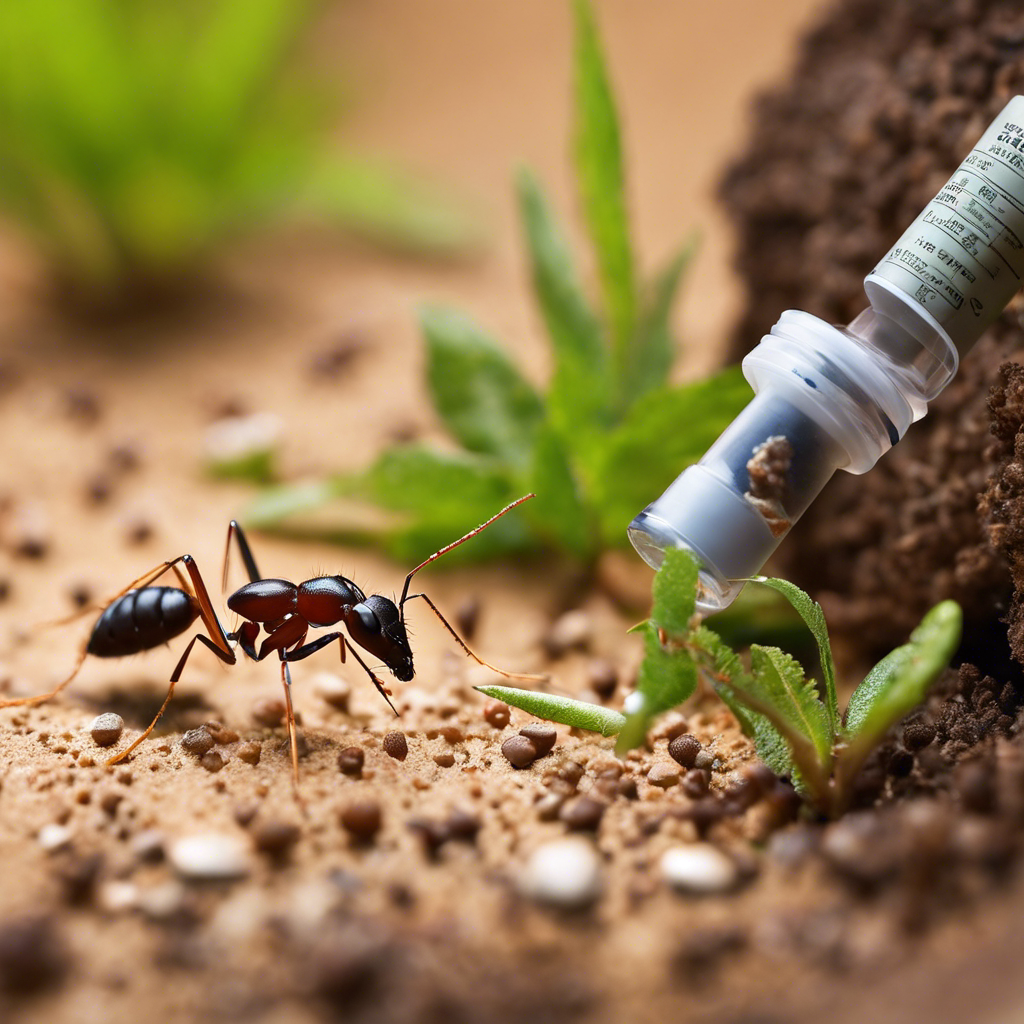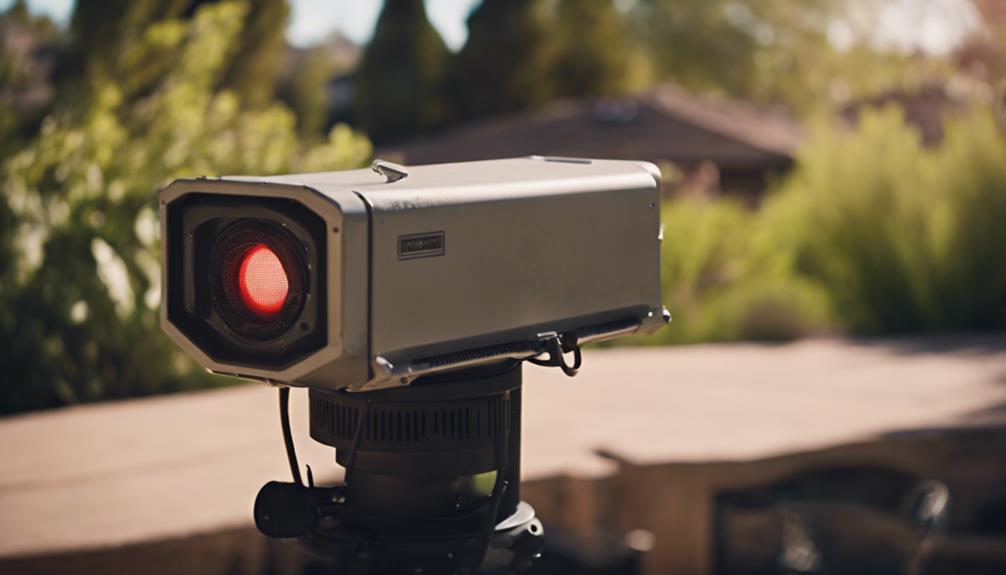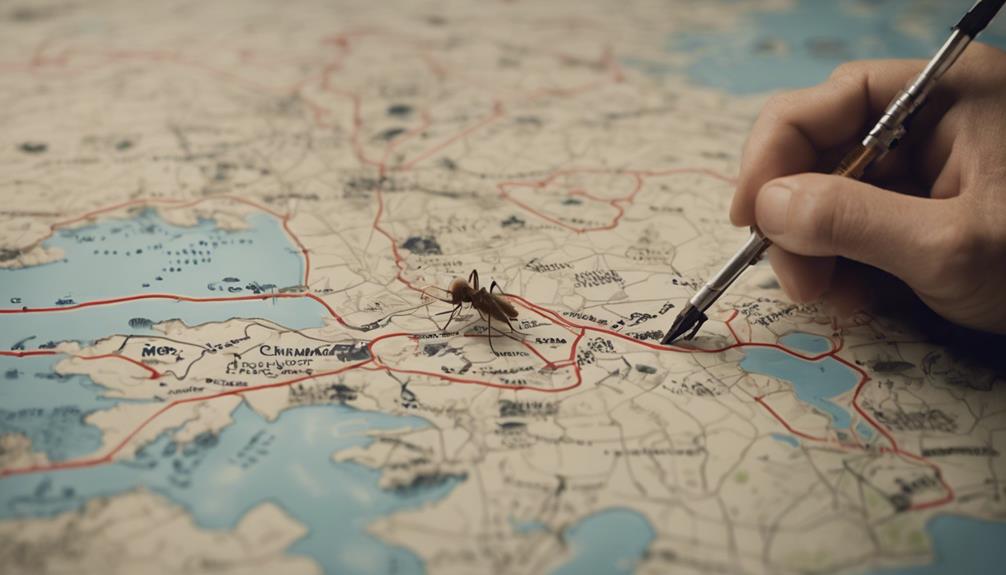They say, ‘You reap what you sow.’ In the case of ant control methods in St. George, this adage holds true concerning their environmental impact. While it’s essential to deal with ant infestations, it’s crucial to be mindful of the consequences.
Chemical sprays, although effective, can harm the environment and wildlife. Bait traps may have ecological consequences, and the use of natural remedies may be more environmentally friendly.
So, how can we strike a balance between managing ant populations and safeguarding the delicate ecosystem? Let’s explore the environmental impact of different ant control methods in St. George and discover sustainable solutions that prioritize the well-being of both humans and the environment.
Key Takeaways
- Chemical sprays used for ant control in St. George can harm the environment through runoff into water sources, contaminating drinking water and harming aquatic life.
- Bait traps for ant control can have significant ecological consequences, including secondary poisoning and the decline of beneficial ant species, impacting soil health and plant growth.
- Biological control methods offer a sustainable and environmentally friendly approach to managing ant populations by introducing natural predators or parasites.
- Natural remedies provide environmentally friendly alternatives for controlling ant infestations, such as using natural deterrents and sealing entry points to reduce the need for chemical treatments.
Chemical Sprays: Potential Harm to Environment
Chemical sprays used for ant control in St George have the potential to harm the environment through runoff into water sources and can adversely affect non-target organisms in the ecosystem.
These chemical sprays, while effective in controlling ant populations, pose a significant risk to the surrounding environment. The runoff of these sprays into water sources can contaminate drinking water and harm aquatic life.
Additionally, non-target organisms such as beneficial insects, birds, and small mammals can be negatively impacted by the chemicals.
The long-term effects of these sprays on soil quality and plant health have also been observed.
It’s crucial to consider environmentally friendly alternatives, such as baits and natural repellents, to minimize the ecological impact of ant control methods in St George.
Bait Traps: Ecological Consequences
Using bait traps for ant control can have significant ecological consequences.
While bait traps are effective in eliminating ant infestations, they can unintentionally harm non-target organisms and disrupt the natural balance of the ecosystem.
One of the main concerns is secondary poisoning, where predators or scavengers consume poisoned ants, leading to harm or death. This can have a ripple effect on the food chain, affecting other insects, birds, or small mammals.
Additionally, bait traps, if not properly managed, can result in the decline of beneficial ant species, which play a crucial role in soil health and plant growth.
Therefore, it’s essential for pest control professionals in St George to use bait traps responsibly and in accordance with environmental regulations to minimize their ecological impact and preserve the overall balance of the ecosystem.
Biological Control: Balancing Ecosystems
Biological control methods offer a sustainable and environmentally friendly approach to managing ant populations and maintaining ecological balance. By introducing natural predators or parasites, such as specific species of wasps or nematodes, into the ecosystem, biological control aims to regulate ant populations without resorting to chemical pesticides. This approach helps to reduce ant infestations effectively while minimizing adverse effects on non-target species and the environment. To paint a clearer picture, consider the following table:
| Biological Control Methods | Benefits |
|---|---|
| Introducing natural predators or parasites | Regulates ant populations |
| Uses specific species of wasps or nematodes | Minimizes adverse effects on non-target species |
| Sustainable and environmentally friendly | Preserves ecological balance |
In St George, professional ant control services, such as local pest control companies, utilize these effective ant control methods. They focus on preventing ants from entering homes by sealing entry points, ultimately maintaining a balanced ecosystem in the community.
Natural Remedies: Environmentally Friendly Alternatives
Natural remedies provide environmentally friendly alternatives for controlling ant infestations in St George. When it comes to ant control methods, it’s important to consider their environmental impact. Here are three environmentally friendly alternatives to traditional liquid insecticides:
-
Natural deterrents: Chalk, vinegar, and ant-repelling herbs can disrupt ant scent trails and make your home less appealing to them. These safe products are readily available and can be used to create barriers and deter ants from entering your home.
-
Seal entry points: Inspect and seal entry points, such as utility openings, windows, doors, and screens, to prevent ants from entering your home. By eliminating their access, you can reduce the need for chemical treatments.
-
Maintain cleanliness: Remove food sources by keeping kitchen counters clean, storing food in airtight containers, and wiping down surfaces regularly. This helps avoid attracting ants and reduces the need for pest control interventions.
When dealing with ant infestations, it’s important to consult with pest control experts who adhere to local regulations and prioritize environmentally friendly solutions.
Integrated Pest Management: Sustainable Ant Control Approach
To continue exploring environmentally friendly alternatives for ant control in St George, an effective approach that emphasizes sustainability and reduced reliance on chemical pesticides is Integrated Pest Management (IPM).
IPM is a comprehensive and holistic strategy that combines biological, cultural, physical, and chemical methods to effectively manage ant populations. This approach focuses on long-term prevention and minimizing the environmental impact of pest control measures.
With IPM, ant control services employ professionals who are trained in identifying ant species, monitoring their activity, and implementing targeted control measures. By adopting IPM, it’s possible to prevent ant infestations and effectively control existing ones, including fire ant infestations.
Additionally, IPM providers often offer warranties and guarantees for their services, ensuring effective and long-lasting pest control.
Frequently Asked Questions
How Do Ants Impact the Environment?
Ants impact the environment in various ways. They disrupt ecosystems, diminish soil fertility, cause biodiversity loss, and harm native species. Pest control alternatives should be considered to minimize negative effects, while recognizing ants’ roles as decomposers, pollinators, and contributors to nutrient cycling and carbon sequestration.
Are There Fire Ants in St George Utah?
Yes, there are fire ants in St. George, Utah. Fire ant control methods are important to prevent their population from increasing. These ants can negatively impact local ecosystems, native species, human health, and pollinators. Effective eradication strategies and sustainable practices are crucial.
Is It Bad for the Environment to Kill Ants?
Killing ants can have negative effects on the environment. However, there are eco-friendly alternatives, like natural repellents and organic methods, that can control ant infestations without harming biodiversity, soil health, or beneficial insects.
How Do Fire Ants Affect the Environment?
Fire ants have a significant ecological impact, causing biodiversity loss, soil disruption, and damage to plants. Their predatory behavior disrupts the balance of native species and can have implications for agriculture. Their invasive nature challenges environmental resilience.




